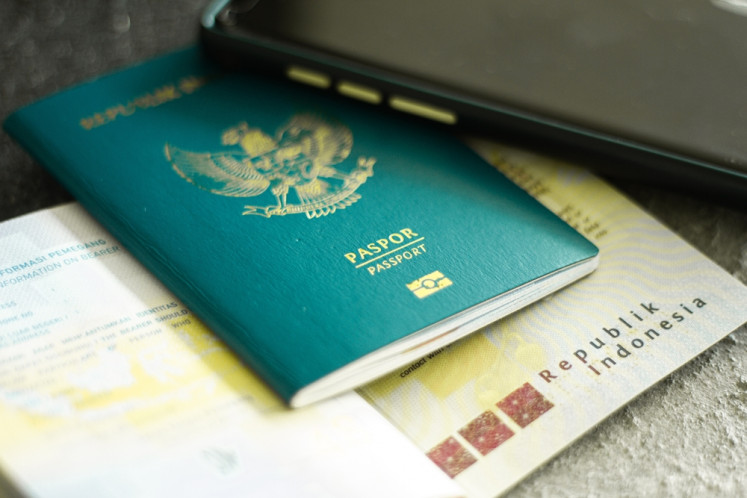Creative professionals overworked, report says
Overworking and work accidents have plagued the creative economy industry, according to a recent survey by Sindikasi, a union of more than 200 creative and media professionals
Change Size

O
verworking and work accidents have plagued the creative economy industry, according to a recent survey by Sindikasi, a union of more than 200 creative and media professionals.
The survey, released Saturday, polled 84 respondents who work in the creative industry in Indonesia, 25 percent of whom work in the media or for the press, while 13 percent work in technology, 11.9 percent in design, 8.3 percent in advertising, 8.3 percent in research and the remaining in unspecified sectors.
In all, 40.5 percent of respondents said they worked more than eight hours a day, the working time set in the 2003 law on employment. In contrast, only 19 percent of respondents said they worked eight hours a day.
The study also found that 82.1 percent of the respondents said they did not get overtime pay.
These employees worked beyond the normal operational hours due to excessive workloads.
Of all 84 respondents, 51.2 percent said their workloads were greater than what was agreed on in the contracts they signed with their employers.
"We found a correlation between working hours and work accidents or illnesses," lead researcher Fathimah Fildzah Izzati said at the launch of the survey on Saturday. "The longer the working hours, the more likely that a work accident occurs."
According to Sindikasi, overworking had led to occupational accidents. The survey found that 52.4 percent of the respondents said they had experienced stress, exhaustion, anxiety and sleep deprivation.
Creative economy workers should manage their workloads, both physical and psychological, to stay healthy and productive, Manpower Ministry head of occupational accident control Anita Kusumawati said.
These workers should also pay attention to their work environments, she added. As they worked almost anywhere, such as at a café with a low coffee tables, they were exposed to ergonomic hazards that could lead to muscle strains and other physical problems.
"Creative and media workers most often face the risk of poor ergonomics because they work anywhere, anytime within a long period," Anita said at the same event. "It may be a potential hazard resulting from the work environment."
The government regulates workers' health and safety, called K3, through Article 86 of the 2003 Employment Law, which requires that employers prevent work accidents and illnesses and control potential hazards at the workplace.
The Workers Social Security Agency (BPJS Ketenagakerjaan) is the government's agency responsible for facilitating employees' needs related to work accidents or illness.
However, according to Suci Rahmad, the agency's deputy for occupational accident insurance and life insurance, most cases went unnoticed due to policyholders’ failures to report to the agency.
Last year, it recorded 44 work accidents, of which 32 were related to physical conditions, while none were caused by psychological factors.
"Is it because people do not know if their illnesses are work-related? Do they report it to the BPJS Kesehatan [Health Care and Social Security Agency] instead? I think many still do not understand it," Suci said at the launch. "The important thing right now is that people should report cases."
Data from the now-defunct Creative Economy Agency (Bekraf) showed that exports from creative industries earned US$19.3 billion in 2015, $19.99 billion in 2016 and $21.5 billion in 2017.
Former Bekraf head Triawan Munaf said in 2018 that the creative industry contributed Rp 1.12 quadrillion ($73.74 billion) to gross domestic product that year. (dfr)









